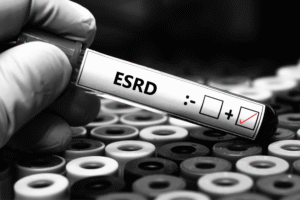Here at The Medicare Navigators we come across many individuals who are getting ready for Medicare after they are divorced or widowed. They are concerned that the loss of their spouse will somehow affect their ability to qualify for Original Medicare (Parts A & B).
You marital status does not affect your ability to qualify for Medicare. Rest assured you can still qualify for Medicare benefits when you are divorced or widowed. You are eligible for Medicare if:
- You are a U.S citizen or legal resident for at least 5 consecutive years; and
- You are:
- Age 65 or older or
- Younger than 65 with a qualifying disability or
- Any age if you have end-stage renal disease (ESRD) or amyotrophic lateral sclerosis (ALS).
What about qualifying for Premium free Part A? See below on how your previous marital status may help.
Will my previous marital status affect the cost of my Part A monthly premium?
Even though your marital status doesn’t affect eligibility, it could impact the cost of your Medicare Part A monthly premium.
Most individuals qualify for premium-free Part A because they’ve worked and paid Medicare taxes for at least 10 years (40 quarters). If you didn’t pay Medicare taxes for at least 10 years, you may not qualify for premium-free or reduced-premium Part A.
However, you will qualify based on the work history of your FORMER spouse if you were married at least 10 years before the date your divorce was final.
OR
If you were married to your DECEASED spouse for at least one year before their death, you will also qualify based on their work history.
Your Part A monthly premium amount depends on how long your spouse worked and paid Medicare taxes.
- You may get premium-free Part A if your former or late spouse paid Medicare taxes for 10 years (40 quarters)
Or
- You may pay $311 per month in 2026 if your spouse paid Medicare taxes for 30-39 quarters; or
- You may pay $565 per month in 2026 if your spouse worked less than 30 quarters.
Individual situations may vary, so be sure to find out what your costs will be for Part A well in advance of the end of your Initial Enrollment Period.
You can check your work credits by creating a My Social Security account on the Social Security Administration’s website.
How will your Part B enrollment be impacted if you lose coverage through your spouse’s employment?
Individuals who do not enroll in Part B when they first become eligible may have to pay late enrollment penalties. But if you had creditable coverage through a spouse’s employer plan, you can avoid the penalty.
If you are covered by your spouse’s employee group coverage and you get divorced, you have 8-months to enroll in Part B. If the group plan was creditable and your spouse was actively employed, then you will not have a penalty. Most people enroll right away to avoid a lapse in coverage. Keep in mind, even though you have 8 months to enroll in Part B, you may have less time for Part D. You may only have 63 days to enroll into a Prescription Drug Plan after your employer coverage expires.
COBRA and Retiree coverage DO NOT COUNT as creditable coverage for Medicare Part B.
Our licensed friendly agents can help you navigate Medicare. We help with all the timelines and deadlines set by Medicare. Meet and contact our agents here!






